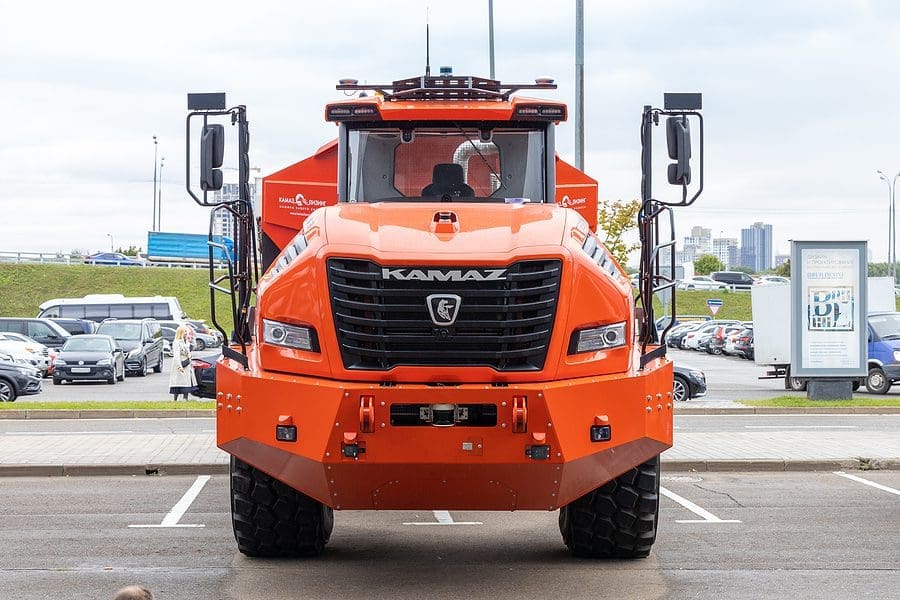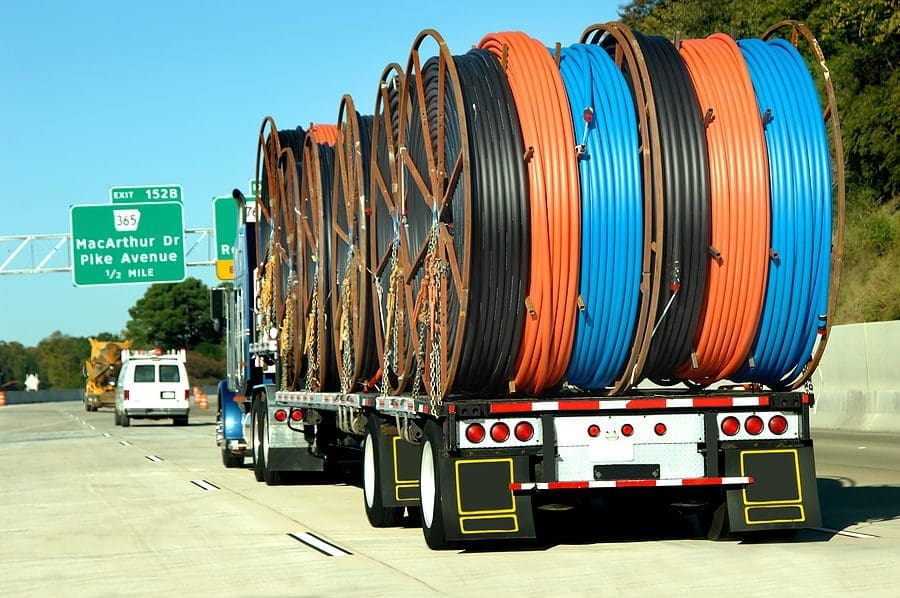JONES LAW GROUPYour Lawyers for Life! Personal Injury Law Firm in St. Petersburg

Self-driving trucks, or autonomous trucks, have been a hot topic in the transportation industry for several years. The technology behind self-driving trucks has been rapidly evolving, and many companies have been testing and deploying them on roads worldwide. Imagine the possibilities autonomous trucks could offer. No longer would fatigued or impaired human drivers cause devastating […]
Call our personal injury law office directly at (727) 512-9847
At Jones Law Group in St. Petersburg, FL, we would like to hear from you. Contact us for a free personal injury case consultation.
Call our personal injury law office at (727) 512-9847
Get educated on the Florida's personal injury laws and more.
Self-driving trucks, or autonomous trucks, have been a hot topic in the transportation industry for several years. The technology behind self-driving trucks has been rapidly evolving, and many companies have been testing and deploying them on roads worldwide.
Imagine the possibilities autonomous trucks could offer. No longer would fatigued or impaired human drivers cause devastating accidents. Instead of dreading being near 80,000-pound commercial vehicles on a crowded highway, motorists could breathe much easier.
However, as impressive as these trucks may be, they can still pose a risk for others on the road. If something goes wrong, a self-driving truck accident can cause catastrophic injuries and deaths.
If you’ve suffered an injury or lost a loved one in an accident caused by an autonomous truck, contact Jones Law Group. Our team of attorneys will determine who is to blame and then pursue them for the maximum compensation you deserve.
Use our online contact form or call (727) 571-1333 for a free consultation.
Several companies have been testing and deploying self-driving trucks on roads worldwide. Some of the most notable companies include Kodiak Robotics, TuSimple, and Embark Technology. These companies have been developing self-driving trucks capable of navigating highways, avoiding obstacles, and handling various weather conditions.
Waymo, owned by Alphabet Inc., has been testing self-driving trucks in Arizona since 2017. Waymo’s self-driving trucks come equipped with lidar, radar, and cameras to navigate the roads.
Tesla, on the other hand, has been working on developing electric semi-trucks with autonomous driving technology. Tesla’s semi-trucks are designed to have a range of up to 500 miles on a single charge and are equipped with cameras and sensors to assist with autonomous driving.
It’s unclear how many autonomous trucks are on Florida roads. Kodiak Robotics announced in July 2022 that it had expanded its autonomous line to our state after completing a successful cross-country run.
Florida has been working on developing regulations for autonomous vehicles. In 2019, Florida Governor Ron DeSantis signed a bill that allows self-driving vehicles to operate on public roads without a human operator. The bill also establishes a framework for the testing and deployment of self-driving vehicles in the state.
However, the full deployment of self-driving trucks in Florida will depend on whether the technology is safe and reliable for public use. It will also depend on the public’s acceptance of self-driving trucks.
Whether self-driving trucks will replace truck drivers is a contentious issue. Some argue that self-driving trucks will reduce the need for truck drivers. Meanwhile, others argue that self-driving trucks will create new jobs in the transportation industry.
Self-driving trucks can potentially improve safety and efficiency in the transportation industry. They can operate for longer hours without rest breaks. They also avoid accidents and traffic jams. Automated commercial vehicles could help make up for a shortage of qualified human drivers.
But most companies aren’t yet ready to completely turn the task of hauling freight to automated trucks. In most instances, self-driving trucks still require a human operator to supervise the technology and take over in emergencies.
If a task can’t be automated, it’s the truck driver’s responsibility. These include loading and unloading cargo, navigating complex delivery routes, and interacting with customers. Therefore, it is unlikely that self-driving trucks will completely replace truck drivers in the near future.
Autonomous trucks have a range of sensors and cameras that enable them to detect and avoid hazards on the road. Some autonomous trucks have other advanced technology, such as artificial intelligence and machine learning algorithms.
These sensors, cameras, and software can detect obstacles, pedestrians, and other vehicles on the road and adjust the truck’s speed and direction to avoid collisions.
Manufacturers are also working on ways for autonomous trucks to handle tire blowouts. Kodiak, for example, produced a video in 2022 showing how its self-driving truck was able to navigate a blowout. The truck could safely come to a stop while staying in its lane.
Semi-truck self-driving innovations are set to revolutionize the trucking industry, offering a glimpse into a future where autonomous technology enhances efficiency and safety on the roads. Companies like Waymo, Tesla, and Embark Technology are at the forefront, developing and testing semi-trucks equipped with advanced sensors, lidar, radar, and cameras. These self-driving trucks promise to reduce human error, minimize accidents, and optimize long-haul transportation. However, despite these advancements, semi-truck self-driving technology is not without risks. Accidents involving autonomous trucks can still occur, potentially leading to severe injuries or fatalities. If you or a loved one has been affected by a semi-truck accident, the attorneys at Jones Law Group are here to help.
If an autonomous truck causes an accident, determining liability can be complicated. Liability can depend on several factors, such as whether the accident occurred due to a malfunction in the autonomous technology or whether the human operator failed to take control of the truck when necessary.
In the case of an accident involving an autonomous truck, the trucking company and the manufacturer of the autonomous technology may both be held liable. The trucking company may be held liable for any negligence by the human operator or for failing to maintain the autonomous technology properly. The autonomous technology manufacturer may be held liable for any defects that contributed to the accident.
Notably, liability in accidents involving autonomous trucks is still a developing area of law. Legislators may introduce new laws and regulations as the technology continues to evolve and become more widespread. These laws and rules will address liability and other issues related to autonomous vehicle accidents.
If you suffer an injury in an accident involving a self-driving vehicle, you should take these steps to protect your legal rights.
The attorneys with Jones Law Group deeply understand the complexities of trucking accidents and can help you pursue the compensation you deserve.
We offer free consultations and work on a contingency fee basis. You only pay if we win! Contact us via our online form or call (727) 571-1333 to schedule a consultation and learn how we can help you.

In the blink of an eye, an accident can turn your life upside down. Suddenly, the plans you had are put on hold so that you can tend to your injuries, deal with insurance, and make alternate arrangements to keep your life moving forward. Since the aftermath of an accident is physically, emotionally, and financially […]

Whether the cause was a motorcycle accident, car wreck, or anything else, losing a loved one suddenly is the hardest thing anyone will ever have to endure. If you’ve suffered this devastating loss, the attorneys with Jones Law Group offer their deepest condolences. You might be looking for justice. You want to hold accountable those […]

According to the National Highway Traffic Safety Administration, overall traffic fatalities are becoming less frequent. However, that is no thanks to truck accidents. The NHTSA predicts an increase in truck accident deaths despite the overall decrease. When truck accidents aren’t deadly, they’re often still incredibly damaging. To complicate matters, survivors don’t often have a simple […]

Injuries and deaths caused by motorcycle accidents in Florida are all too common. With Florida’s ideal climate for outdoor activities, motorists need to be more cautious and less distracted when driving in Florida and always be aware of motorcycles on the road. Speed is also a factor in many motorcycle accidents. Florida leads the nation […]

By: Heath C. Murphy + – Personal Injury Cars are safer than ever before. Cars are increasingly coming equipped with forward collision warning systems, blind spot detection, lane departure warning, lane departure prevention, autobraking, adaptive headlights and adaptive cruise control. Google is testing driverless technology and expects to have the technology available to automakers by […]

Anyone who has slipped and regained their footing knows the sense of relief that comes with narrowly escaping a fall. Unfortunately, there are also plenty of times we can’t brace ourselves fast enough, and the consequences can be much more serious than a little shock or embarrassment. Slip and Fall Statistics Twenty percent of falls […]
Speak with us before time runs out! In Florida, you have a limited window to file a personal injury case, so speak to an Attorney today.
Call our personal injury law office directly at (727) 512-9847
Jones Law Group is a dedicated personal injury lawyer in St. Petersburg, FL, serving the Tampa Bay area since 2006. Our experienced attorneys specialize in car accidents, slip and fall cases, employment law disputes, construction law issues, and overtime wage claims, fighting for maximum compensation on a contingency fee basis. Contact us for a free consultation to discuss your case.
Call our personal injury law office at (727) 512-9847
© Copyright 2006–2025 Jones Law Group Attorneys at Law. All rights reserved. Privacy Policy Terms of Use
Attorney Advertising.
The information on this website is for general information purposes only. Nothing on this site should be taken as legal advice for any individual case or situation. This information is not intended to create, and receipt or viewing does not constitute, an attorney-client relationship. Past results do not guarantee similar outcomes.
Are you injured or wronged and interested in a consultation? Fill out the form for a free consultation with us.